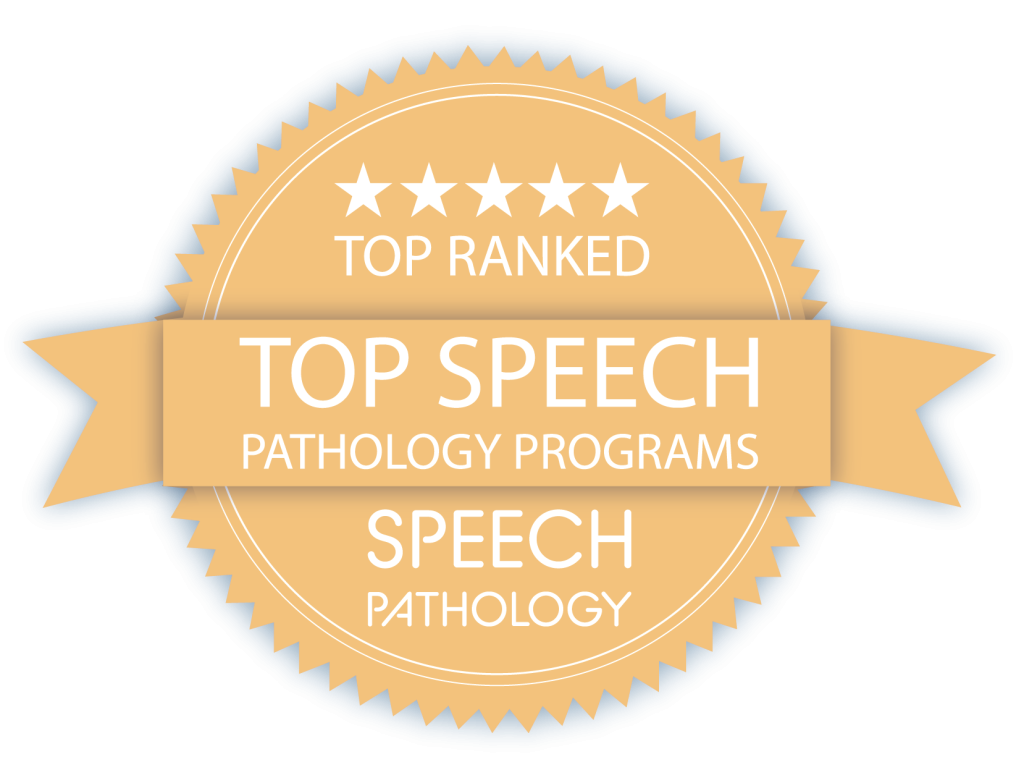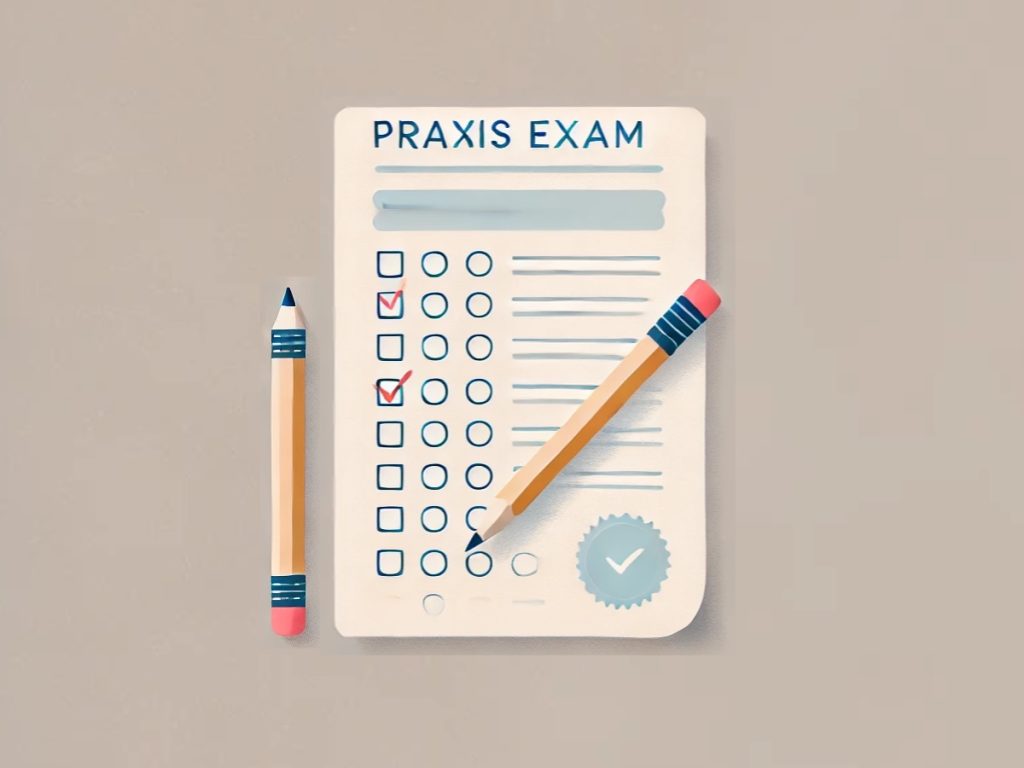Last Updated
April 16, 2025Written By
Cynthia Harris, M.S., CCC‑SLPFor those interested in pursuing a top-ranked speech pathology degree, Pennsylvania presents a strong case based on academic quality and future job prospects. What makes Pennsylvania special is the opportunity to practice in diverse professional settings, ranging from innovative medical facilities in Philadelphia to limited resources in rural areas and schools across the state, which prepare graduates for different career directions.
According to the Bureau of Labor Statistics (BLS) May 2023 data, Pennsylvania employed 6,860 SLPs with a mean annual wage of $88,790, just shy of the national median of $89,290. However, the state’s top 10% earn over $121,950, reflecting robust earning potential. According to the BLS, the demand for speech-language pathologists is increasing nationally by 18% from 2023-2033, with 13,700 annual jobs being created; however, the demographics of the state—especially the aging population and the need for education—enhance this trend in Pennsylvania.

Looking for the best speech pathology programs in Pennsylvania? peechpathology.org ranks top speech-language pathology degrees to help you choose the best one for you. Our list highlights programs known for quality, research, and clinical training. We focus on what matters to students and professionals in Pennsylvania. Learn how we rank schools at speechpathology.org/rankings-methology.

Philadelphia, PA - Public 4-Year - temple.edu
Campus Based - Visit Website
Temple University's Bachelor of Arts in Speech, Language and Hearing Science provides foundational knowledge for aspiring speech-language pathologists and audiologists. The 122-credit campus program blends theory with practical experience, covering anatomy, linguistics, and neuroscience to prepare students for graduate studies. Admission requires a strong academic record, and financial aid is available for a diverse student body. This bachelor's program requires ACT or SAT entrance exams for admission, offering a stepping stone to careers in communication sciences.
Campus Based - Visit Website
Temple University's Master of Arts in Speech, Language and Hearing Science prepares professional speech-language pathologists through comprehensive clinical training across diverse populations and life stages. With over 80 clinical affiliate sites, students gain extensive hands-on experience evaluating, diagnosing, and treating communication disorders. The program offers flexible two- to three-year completion timelines, thesis research options, and expert faculty guidance. Graduates become eligible for American Speech-Language-Hearing Association membership and can work in hospitals, schools, and rehabilitation centers. This master's program requires an entrance exam for admission.
Concentration: Speech-Language Pathology with emphasis in adult language disorders - Campus Based - Visit Website
Temple University's PhD in Communication Sciences and Disorders with a concentration in adult language disorders is a research-intensive program preparing scholars for leadership in academia and research. Emphasizing rigorous methodology, students engage in interdisciplinary studies through collaborations with Temple University Hospital and MossRehab. The program offers full-time or part-time options, research assistantships, and requires 45 credit hours with a seven-year completion limit. This doctorate program requires an entrance exam for admission, focusing on advanced research in speech-language pathology.
Concentration: Speech-Language Pathology with emphasis in child language and literacy development and disorders - Campus Based - Visit Website
Temple University's PhD in Communication Sciences and Disorders with a concentration in child language and literacy development and disorders prepares students for research and academic leadership. The program emphasizes original research, interdisciplinary opportunities, and coursework in psycholinguistics and biostatistics. Designed for full- or part-time study with a seven-year limit, it requires a bachelor's in a related field, a statement of goals, and a writing sample. This doctorate program requires an entrance exam for admission, focusing on child language and literacy issues.
Concentration: Speech-Language Pathology with emphasis in motor speech - Campus Based - Visit Website
Temple University's PhD in Communication Sciences and Disorders with a concentration in motor speech trains students for leadership in research and teaching. The program features interdisciplinary electives in biostatistics, education, and psychology, along with affiliations with top institutions. Flexible full- or part-time options, research assistantships, and a curriculum fostering original research are key highlights. Admission requires a bachelor's in related fields and statistics coursework. This doctorate program requires an entrance exam for admission, specializing in motor speech disorders.
Scranton, PA - Private 4-year - scranton.edu
Concentration: Healthcare Specialization - Online Learning - Visit Website
The University of Scranton's online Master of Science in Speech-Language Pathology with a Healthcare Specialization prepares culturally competent clinicians through 63-73 credit hours of evidence-based distance learning. This Jesuit-inspired program emphasizes person-centered care, ethical practice, and clinical rotations while meeting 2020 CCC Standards and pursuing CAA accreditation. As a master's program, it requires an entrance exam unless explicitly waived.
Online Learning - Visit Website
University of Scranton's online Master of Science in Speech-Language Pathology offers a comprehensive 63-73 credit hour curriculum grounded in Jesuit traditions, focusing on evidence-based practice and cultural responsiveness. The distance learning format includes summer clinical rotations and prepares professionals for diverse populations with communication disorders, aligning with national certification standards and CAA accreditation candidacy. An entrance exam is required for this master's program unless stated otherwise.
Pittsburgh, PA - Public 4-Year - pitt.edu
Concentration: Speech-Language Pathology - Campus Based - Visit Website
The University of Pittsburgh's 60-credit Master of Science in Speech-Language Pathology prepares students for clinical certification through intensive coursework and extensive practical training across diverse settings. This comprehensive program offers thesis and non-thesis options, school certification pathways, and requires over 100 community-based clinical sites with a minimum of 10 clinic credits. The curriculum covers pediatric and neurogenic disorders, ensuring graduates can diagnose and treat various communication challenges. This master's level program requires an entrance exam.
Concentration: Speech-Language Pathology - Campus Based - Visit Website
The University of Pittsburgh's Master of Arts in Speech-Language Pathology provides cutting-edge research combined with comprehensive clinical training through 100+ community-based sites. This 60-credit program typically completes in 6 terms and includes a summative assessment project, preparing graduates for professional success in schools, hospitals, and private practices. Students master advanced assessment and intervention techniques across multiple clinical practice settings. This master's level program requires an entrance exam.
Bethlehem, PA - Private 4-year - moravian.edu
Campus Based - Visit Website
Moravian University's Master of Science in Speech-Language Pathology is an intensive two-year campus program that prepares students to become skilled communication specialists. Using a problem-based learning approach, students develop critical clinical skills through interactive case studies and interprofessional collaboration. The comprehensive curriculum focuses on serving diverse populations with communication and swallowing disorders, preparing graduates for successful careers in healthcare settings. This program requires an entrance exam for admission.
Online & Campus Based - Visit Website
Moravian University's Speech-Language Pathology Doctorate (SLPD) is a hybrid program designed for practicing clinicians seeking advanced professional development. Completed in just five semesters with a three-day summer residency, this $33,600 program emphasizes research, clinical skills, and leadership development through flexible online learning and personalized mentorship. The evidence-based curriculum prepares scholar-practitioners to transform healthcare practices through interprofessional collaboration and includes a dual SLPD-MBA option. This doctoral program requires an entrance exam for admission.
Bloomsburg, PA - Public 4-Year - commonwealthu.edu
Campus Based - Visit Website
Commonwealth University of Pennsylvania's undergraduate Audiology and Speech-Language Pathology program offers a campus-based foundation for graduate studies in speech-language pathology or audiology. Students gain practical skills and theoretical knowledge through state-of-the-art facilities including an on-campus clinic, meeting ASHA accreditation requirements. The program explores related fields through minor options in psychology, special education, and linguistics, preparing graduates for growing demand in educational, clinical, and medical settings. As a bachelor's level program, entrance exam requirements (ACT/SAT) are not specified in the provided data.
Online & Campus Based - Visit Website
Commonwealth University of Pennsylvania's Master of Science in Speech-Language Pathology is a comprehensive two-year hybrid program that combines face-to-face and online coursework with extensive clinical practicum opportunities. The program boasts a 98% employment rate and 91% PRAXIS exam pass rate, preparing students for diverse communication disorders across all age groups. As an ASHA-accredited program, it provides pathways to certification and licensure without requiring the GRE entrance exam. Students benefit from graduate assistantships and fall semester enrollment with a February 1st application deadline.
Philadelphia, PA - Private 4-year - sju.edu
Campus Based - Visit Website
Saint Joseph's University's Communication Sciences and Disorders bachelor's program prepares students for graduate studies in speech-language pathology with a linguistics-focused curriculum. It includes 25 observation hours and an articulation agreement with Salus University, taught by active practitioners. As an undergraduate program, it does not require ACT or SAT entrance exams, is military-friendly and Roman Catholic-affiliated, and offers diverse career paths in schools, hospitals, and clinics through a liberal arts foundation in Philadelphia.
Campus Based - Visit Website
Saint Joseph's University offers a Master of Science in Speech-Language Pathology through a 4+2 pathway with Salus University, requiring a 3.5 GPA in a 120-credit Pre-SLP curriculum for direct entry. This campus-based program emphasizes linguistics and provides a seamless transition from bachelor's to master's studies. No entrance exam is required for this graduate program, which is military-friendly and Roman Catholic-affiliated, focusing on comprehensive training in communication sciences and disorders.
Doylestown, PA - Private 4-year - delval.edu
Online Learning - Visit Website
Delaware Valley University's online Master of Science in Speech-Language Pathology offers a flexible 20-month curriculum for career changers and recent graduates, accommodating diverse academic backgrounds. This program emphasizes hands-on clinical experience and develops skills in assessment and intervention, preparing students for a field projected to grow 25% by 2029. With a 4:1 student-faculty ratio and clinical placement opportunities, it is a candidate for CAA accreditation and does not require an entrance exam. Graduates can pursue rewarding careers with median salaries exceeding $80,000 in healthcare and education settings.
Philadelphia, PA - Private 4-year - jefferson.edu
Campus Based - Visit Website
Thomas Jefferson University's Master of Science in Speech-Language Pathology is a comprehensive 60-credit, two-year graduate program on the Center City campus. It prepares students for ASHA certification and state licensure through diverse clinical experiences and interprofessional rehabilitation training. The program includes multiple practicums, a Clinical Skills Center, and advanced specialization options, with a fall start and full-time track. This master's program requires an entrance exam.
Concentration: voice and swallowing - Campus Based - Visit Website
Thomas Jefferson University's Master of Science in Speech-Language Pathology with a concentration in voice and swallowing offers a specialized 60-credit, two-year program on the Center City campus. Students gain hands-on experience in voice and swallowing interventions through clinical practicums and interprofessional rehabilitation, preparing for certification, licensure, and fellowships. The program features a simulation center and is a candidate for CAA accreditation, with a fall start. This master's program requires an entrance exam.
Concentration: medical/rehabilitation setting - Campus Based - Visit Website
Thomas Jefferson University's Master of Science in Speech-Language Pathology with a medical/rehabilitation setting concentration is a rigorous 60-credit, two-year program on the Center City campus. It emphasizes medical specialization through three part-time and one full-time practicum, interprofessional training, and a Clinical Skills Simulation Center, preparing students for certification and licensure in PA, NJ, and DE. The full-time cohort starts in fall. This master's program requires an entrance exam.
Pittsburgh, PA - Private 4-year - carlow.edu
Online Learning - Visit Website
Carlow University's Pre-Speech-Language Pathology program is a 3-year accelerated Bachelor of Science blending online and on-campus learning to ready students for graduate studies. The curriculum covers biology, psychology, and communication sciences, emphasizing ethical leadership and hands-on experience. Admission requires a minimum 3.250 GPA and an ACT or SAT exam, with applications accepted anytime for fall starts. This program addresses rising healthcare demands by fostering teamwork and patient care skills in aspiring speech-language pathologists.
Campus Based - Visit Website
Carlow University's Master of Science in Speech-Language Pathology emphasizes interprofessional collaborative practice, preparing students to assess and treat communication and swallowing disorders through 60 credits of rigorous coursework and diverse clinical experiences. This on-campus program, costing $998 per credit and completed in five semesters, integrates cutting-edge simulation technologies and faculty mentorship. It requires an entrance exam and starts each fall, with priority applications due February 1. Graduate assistantships are available, focusing on clinical skills development for a field with strong career growth.
University Park, PA - Public 4-Year - psu.edu
Campus Based - Visit Website
Pennsylvania State University's Master of Science in Communication Sciences and Disorders is a five-semester, full-time campus program designed to prepare students for ASHA certification and Pennsylvania state licensure. This comprehensive curriculum integrates academic coursework with extensive hands-on clinical experiences across multiple settings, enabling graduates to assess, diagnose, and treat various communication disorders. Students benefit from nationally recognized faculty and robust research opportunities, developing advanced clinical competencies and critical thinking skills essential for professional success. The program requires an entrance exam for admission.
Concentration: Speech-Language Pathology - Campus Based - Visit Website
Pennsylvania State University's Ph.D. in Communication Sciences and Disorders with a concentration in Speech-Language Pathology focuses on advanced research and clinical practice in innovative approaches to speech and language disorders. This campus-based program, accredited by the Council on Academic Accreditation, combines theoretical knowledge with practical training to prepare graduates for careers in academia, research, and clinical settings. Emphasizing rigorous research and clinical experiences, it equips students with the expertise needed to address complex communication challenges. The program requires an entrance exam for admission.
For those considering a Bachelor’s in speech pathology and Master’s in Pennsylvania, the decision depends on career plans and the initial level of study, as the state has certain features that make it different from other states. A Bachelor’s degree—this is four-year education, 120 credits—is an introduction to communication sciences and disorders; such programs are offered by Penn State or West Chester University and cost $650-$700 per credit in-state or $1,200-$1,350 out-of-state.
The early contact with the field is a significant advantage of the state due to its location close to a large number of clinical sites, including Philadelphia and Pittsburgh. This availability helps undergrads see SLPs work in hospitals, schools, and even rural areas, than in other states with limited possibilities. The state has a strong employment market with 6,860 speech-language pathologist jobs as of May 2023 according to the Bureau of Labor Statistics (BLS), which has been increasing steadily due to the increasing population, making a Pennsylvania Bachelor’s degree a good starting point for the growing profession.
A Master’s degree in speech-language pathology, however, is the ticket to licensure and advanced practice, and it follows a two-year, 36 credit hour program after a Bachelor’s degree from schools like Temple University or the University of Pittsburgh, which costs between $1,000-$1,100 in-state and $1,600-$1,700 out-of-state. Pennsylvania’s Master’s programs are particularly strong, according to their depth — think very strong clinical training and faculty with practice connections — to help graduates enter a field where the BLS reports the mean salary is $88,790, with top earners making more than $121,950.
When compared to coastal states like California, Pennsylvania tends to be equal or better in areas of affordability, quality, and job prospects, which also include a variety of practice settings, from large metropolitan medical facilities to sparse rural areas. Pennsylvania’s SLP community is robust, with job growth expected to increase 18% nationally from 2023-2033, making a Master’s degree here less a matter of education and more a direct pathway to a rewarding career with real benefits.
For professionals or students in Pennsylvania interested in advanced degrees in speech-language pathology, understanding the difference between a PhD in Speech Pathology and a Doctor of Speech-Language Pathology (SLPD) helps define unique career paths that are enhanced by the state’s specific environment. A PhD, four to six years and 60 to 90 credits, is the highest level of achievement for research and academic contribution.
Pitt has one of the most prestigious PhD programs in Communication Science and Disorders in Pennsylvania, focusing on innovative research in specific areas like swallowing or language development. This path is for those who desire to teach at the university level or to lead studies in defining the future of speech pathology. Costs are approximately $1,000 to $1,100 per credit in-state and $1,600 to $1,700 out-of-state. The state has close proximity to diverse populations and top-notch medical centers, which present unique research opportunities for PhD candidates. Many graduates see their salaries rise well above $121,950, making it a good investment if one has a passion for discovery rather than direct patient care.
In contrast, the SLPD is a 3-4 year, 60-90 credit clinical doctorate that focuses on leadership and complex patient care for the experienced SLP rather than research. There is no standalone SLPD program in Pennsylvania, but nearby options include Pitt’s hybrid Doctor of Clinical Science (CScD) or national online speech pathology programs like Rocky Mountain University or Nova Southeastern University (costing $700–$1,200 per credit).
The SLPD is attractive to clinicians who wish to achieve excellence in practice or administration without moving—ideal for Pennsylvania’s SLPs working in urban hospitals or rural schools. The BLS expects an 18% increase in national jobs up to 2033, and Pennsylvania’s mean SLP salary of $88,790 is stable, with clinical experience driving up the numbers. Pennsylvania provides a strong base for SLPs and real-world diversity, whether one seeks the academic reputation of a PhD or the practical outcomes of an SLPD.
In Pennsylvania, to become a licensed speech-language pathologist (SLP), one has to fulfill certain educational and experiential requirements. The educational requirement is a master’s degree from a program accredited by the Council on Academic Accreditation (CAA), which is an affiliation of the American Speech-Language Hearing Association (ASHA). This usually entails 36 – 60 credits in topics such as communication disorders and clinical methods. They must have 400 hours of clinical practicum supervised by a supervisor, including 25 hours of observation and 375 hours of direct practice, and then follow a 36-week, full-time supervised professional experience of 1,260 hours, which is often referred to as a clinical fellowship.
They must also pass the Praxis Speech-Language Pathology exam, which is administered by ETS. Application fees range between $50 to $100, processed through the Pennsylvania Licensing System (PALS), with additional costs for the exam. Out-of-state licensees are allowed in Pennsylvania if the standards of the other state are similar to or higher than those of the Commonwealth or through an ASHA Certificate of Clinical Competence (CCC-SLP) waiver. The state’s clinical settings are also diverse – from advanced hospitals to rural schools which enhance the speech pathology licensure process and help prepare SLPs for an effective career.
License renewal guarantees that SLPs are up to date and ready to perform their duties. Licenses are renewable every two years and expire on July 31 of even-numbered years. The cost of the license is about $65. Practitioners must complete 20 clock hours of continuing education (CE) per cycle, and two (2) hours of the CE must be on child abuse recognition and reporting training, known as Act 31, in the state of Pennsylvania. CE must be related to speech-language pathology practice and reported through the PALS system, and the provider must maintain evidence of completion for audit.
Practicing as a speech pathologist without a valid license can lead to disciplinary measures, and the penalty for waiting until the last minute to renew is $5 per month. This is a good model for a strong workforce in a state where SLPs earned a mean salary of $88,790 in 2023, as reported by the BLS, with top earners making more than $121,950 in a field projected to grow 18% nationally from 2023-2033.
For individuals wanting to quickly start a SLP career in Pennsylvania, there are several programs that provide an accelerated path to speech pathology licensure without compromising on quality. The University of Pittsburgh: At the master’s level which is the minimum for SLP licensure, the University of Pittsburgh provides a fast track Master of Arts in Speech-Language Pathology that can be completed in as soon as 20 months for full time students with a relevant bachelor’s degree. This 36 credit hour program includes intensive coursework along with clinical practicums, which benefit from the medical community of Pittsburgh.
Temple University also offers a fast track through its Master of Arts in Speech, Language, and Hearing Science, which can be completed in two years or less with summer sessions and a focused 36 credit curriculum. The costs are in line with state norms, ranging from $1,000 to $1,100 per credit in-state and $1,600 to $1,700 out-of-state, however, accelerated timelines may reduce the overall costs by shortening the enrollment period. These programs take advantage of Pennsylvania’s clinical SLP settings, ranging from urban hospitals to suburban schools so graduates can enter the workforce quickly.
| School Name | Highlights | Retention & Grad Rates |
|---|---|---|
| University of Pittsburgh-Pittsburgh |
|
|
Temple University
|
|
|
| Duquesne University |
|
|
For the students who want to pursue their career in speech-language pathology but are budget constrained, there are several affordable SLP degree programs in Pennsylvania that provide a quality education at a lower cost. The bachelor’s degree which is offered by West Chester University has Communicative Disorders as its area of focus and it currently charges $650 per credit in-state, which makes it approximately $78,000 for the 120 credits. For the master’s degree that is needed for SLP licensure, Bloomsburg University has a Master of Science in Speech-Language Pathology which costs about $516 per credit in-state, thus the whole program which is 36 credits is less than $20,000 although for out of state students the charge is $774 per credit.
Another school that is also worthy of mention is Edinboro University which is now a part of PennWest, it also offers a Master of Arts in Speech Pathology at $516 per credit in-state, thus combining affordability with an ability to access rural clinical placements. These programs harness Pennsylvania’s heterogeneous practice settings, including small towns’ schools and cities’ clinics, to guarantee clinical practice without a hefty price tag.
| School Name | Highlights | Annual Estimated Tuition & Fees |
|---|---|---|
| Carlow University |
|
|
| Moravian University |
|
|
| Gwynedd Mercy University |
|
|

If you are pursuing the position of a speech-language pathologist, then you may have heard of the Praxis exam from your professors, classmates, or even

If you are interested in pursuing a career in SLP and have been researching licensing requirements or are simply interested in learning more about SLP

If you have ever been researching speech-language pathology careers and come across the words ‘speech pathologist’ and ‘speech therapist’, you might wonder if they are

Dyslexia, a common learning difference affecting reading, writing, and language processing, can present unique challenges for students transitioning from high school to college. Fortunately, a